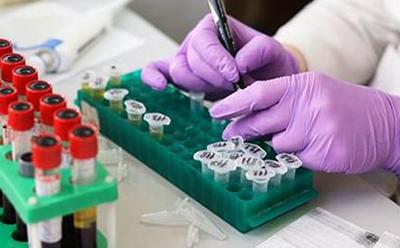Southampton researchers to tackle threat of antibiotic resistance in new £2.8m laboratories

Researchers from the University of Southampton will assess rapid diagnosis technologies and treatments against antibiotic resistant infections in new research laboratories at University Hospital Southampton.
The university-hospital partnership and Global Network for Anti-Microbial Resistance and Infection Prevention (UoS NAMRIP) have won £2.8 million in funding for the state-of-the-art research facilities to tackle a growing global threat on the frontline.
The funding is part of a £32 million package awarded to ten sites nationally by the Department of Health and Social Care, in support of a 20-year vision.
Overuse of antibiotics has driven anti-microbial resistance (AMR) - the emergence of bacteria and fungi strains immune to their effects, resulting in infections that kill over 5,000 people each year in the UK. That figure is rising year-on-year and globally there is concern that new strains may emerge that are resistant to all existing antibiotics.
Professor Tim Leighton, of the School of Engineering and Director of UoS NAMRIP, said: “This award is a huge achievement and we are extremely grateful to the Department of Health and Social Care. This is an enormous opportunity to close the loop of researchers working with end users to define the key problems and opportunities to address AMR, conduct ground-breaking research to address those, and then progress to end users who can ensure breakthroughs are translated out to benefit on a societal scale.”
Located at the heart of Southampton General Hospital, researchers at the laboratories will work directly with consultants and services including adult and children’s medicine, major surgery, infectious diseases and emergency care.
Southampton is already at the forefront of world-leading clinical research in infectious diseases through studies such as a pioneering use of genetically-modified harmless bacteria to dislodge strains that cause life-threatening meningitis by Professor Robert Read, Director of the National Institute for Health Research (NIHR) Southampton Biomedical Research Unit and lead applicant on the facilities award.
"These bacteria have worked the current drugs out, and they'll do the same again,” he said. “We have to keep finding new ways in, fast, but developing completely new treatments like ours will need completely new resources, like this lab.
“By bridging the gap between experimental AMR studies in our National Institute for Health Research (NIHR) Clinical Research Facility, the UoS-based National Biofilm Innovation Centre and the clinical frontline it will speed up access to, and development of, new treatment.”